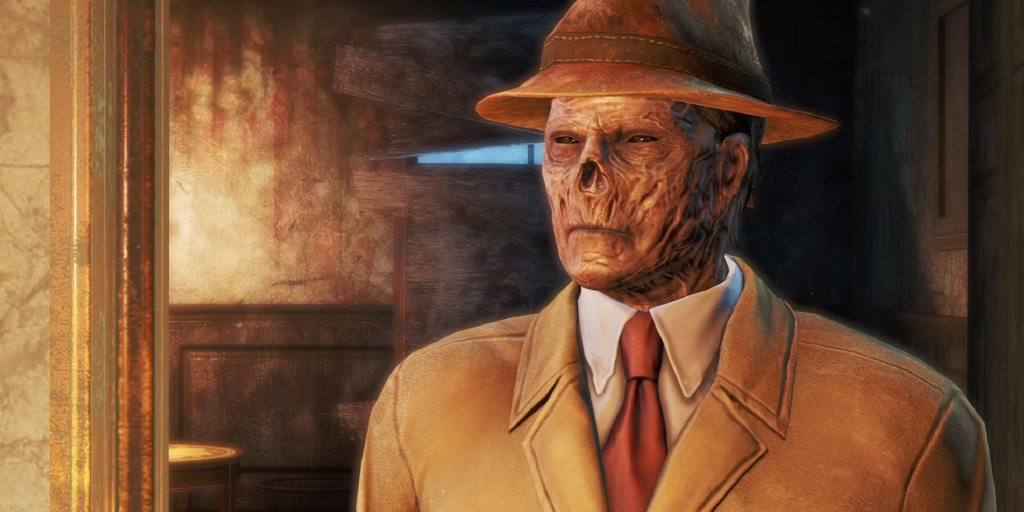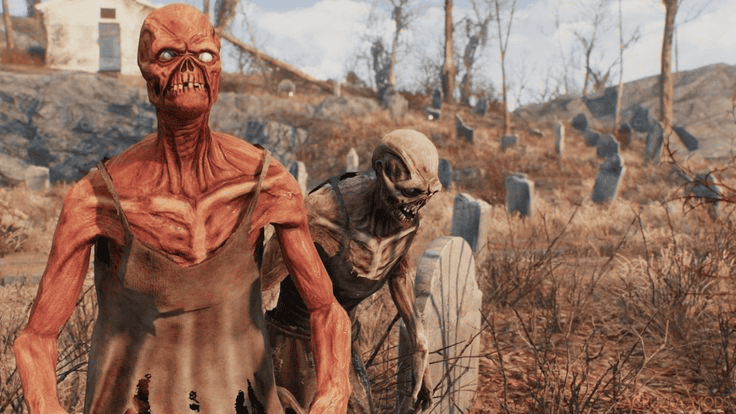In the vast world of Fallout, permeated by the post-apocalyptic desolation of a civilization destroyed by the nuclear war, the Ghouls appear as one of the sorbbeter facets of the saga. Molded by radiation and deformed by their devastating effects, ghouls are humans or animals that have suffered grotesque mutations, but in many cases keep their conscience and memories.
Let’s finally understand what the Ghouls are and what their importance in the Fallout narrative, either in the series or in the franchise games.
Also read:
What are the Ghouls?
The Ghouls, also known as necrotic, were introduced in the first game of the Fallout series, developed by Interplay. Appearing from the great war of conflict between the US and China, the Ghouls are the result of the extended exposure to nuclear radiation. While many perished under the lethal effects of radiation, others have undergone a grotesque metamorphosis, becoming wrinkled skin creatures, putrefate and, in many cases, deformed members.

The distinctive feature of the Ghouls is their longevity. While ordinary humans succumb to time, Ghouls, due to the regenerative effects of radiation, can live for centuries, accumulating memories and experiences over decades.
This longevity, however, is a two -edged knife, as many Ghouls witnessed countless tragedies and suffered from the isolation and prejudice of those who consider them aberrations.
Ghouls have a wide variety of physical and psychological characteristics. While some maintain their sanity and reasoning ability, others succumbed to mental degeneration, becoming feral and aggressive. This dichotomy between “normal” and feral ghouls is a recurring theme in the Fallout series, highlighting the varied effects of radiation on the mind and body of affected individuals.
Despite the social stigma and the difficulties faced, the Ghouls managed to establish their own communities within the Fallout world. Places such as Necropolis, Underworld, Bright Brotherhood and Goodneighbor are examples of Ghoul settlements, where these marginalized beings found refuge and solidarity among their own.
However, conflicts between these beings and humans are still common, reflecting the tensions and prejudices that persist even in a world devastated by nuclear war.

The role of the ghouls in the Fallout narrative
Within the complex and multifaceted narrative of Fallout, the Ghouls play various and significant roles. In addition to being found as friendly or hostile NPCs during exploration of the world, Ghouls often serve as catalysts for moral and ethical issues.
The duality between Ghouls who maintain their humanity and those who have become feral raises profound issues on identity, morality and the impact of radiation on the fate of humanity. In addition, the presence of ghouls as members of established communities offers a unique perspective on social and political dynamics within the post-apocalyptic world of Fallout.
These creatures represent one of the darkest and fascinating facets of the Fallout Universe. Molded by radiation and marked by their condition of “non-people”, these grotesque beings offer a provocative reflection on the devastating effects of nuclear war and the resilience of the human spirit in the face of adversity.